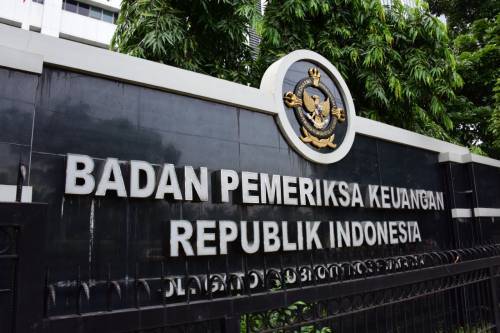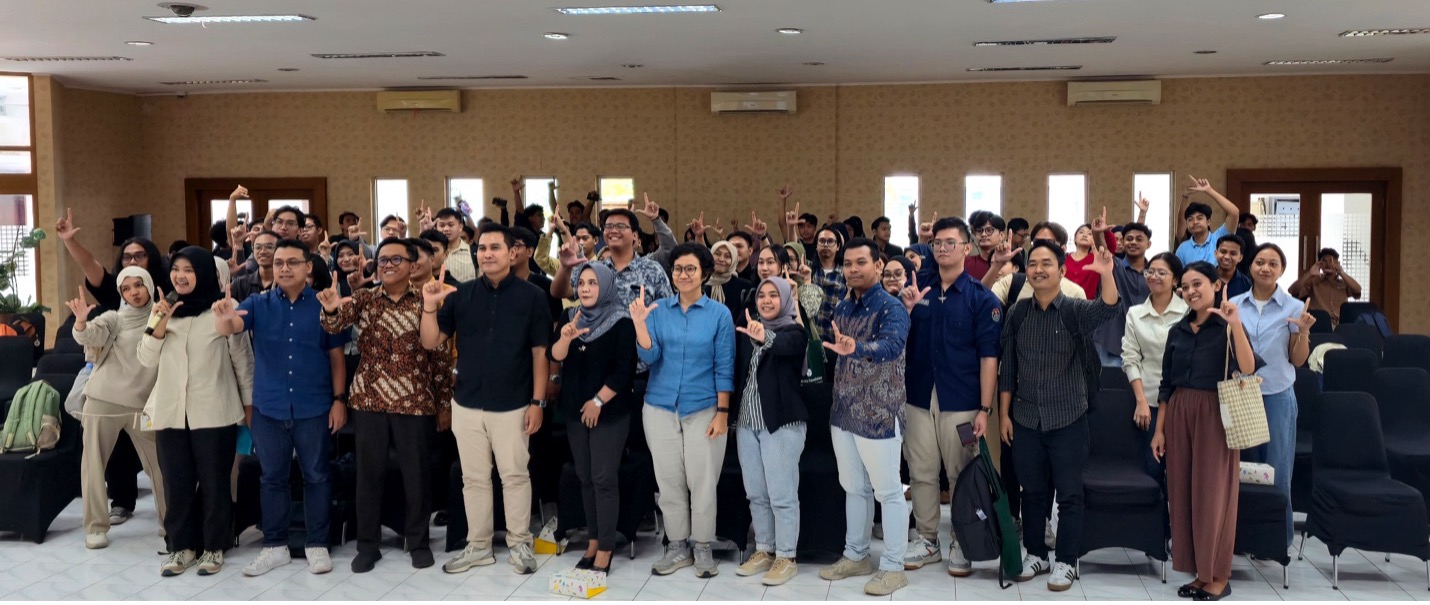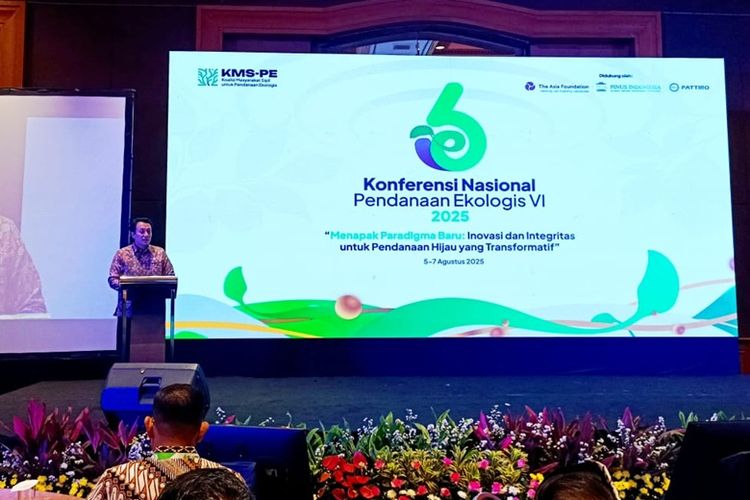
The Central Information Commission (KI) will conduct a local inspection to the Supreme Audit Agency (BPK) for failing to provide strong evidence of exempted information. The inspection is conducted by the Central Information Commission to resolve the information dispute related to the Hambalang audit case between BPK as the respondent and the Center for Regional Information and Studies (PATTIRO) as the applicant. In fact, the results of the BPK audit of the Hambalang Stadium construction volume I and volume II will be used by PATTIRO to conduct a generic pattern study of state losses in infrastructure projects.
PATTIRO considers that BPK has not implemented the regulations seriously and is very inconsistent. First, based on existing regulations, BPK stated that the Audit Report (LHP) of Hambalang Volume I and Volume II is exempt information, so it cannot be disclosed to the public. In fact, the LHP information was given to Commission IX of the House of Representatives in August 2013, making the exemption irrelevant. Based on Article 7 paragraph (5) of Law No. 15 Year 2006 on the Supreme Audit Agency (BPK Law), the LHP that has been submitted to the DPR, DPD and DPRD is declared open to the public. PATTIRO is worried that if the information is not disclosed to the public, it will become a political bargaining tool that will harm the people.
Second, if BPK assesses and states that the results of the Hambalang Audit LHP indicate state losses or criminal acts have occurred, so according to BPK, the Hambalang Audit LHP information requested by PATTIRO is exempt information because it contains investigative and fraud forensic audit information, BPK should only report the audit results to the authorized agency. In this case, is Commission IX DPR RI the authorized party to receive the information?
According to the BPK attorney, the LHP was submitted to Commission IX of the House of Representatives because it was Commission IX of the House of Representatives that requested the investigative audit. Anyone, be it the DPR, the public, NGOs, has the right to request an investigative audit based on the data they have, or based on the findings of the previous LHP. The question then arises, does Commission IX of the House of Representatives have the right to request the results of an investigative audit? Is Commission IX of the House of Representatives an authorized agency in accordance with Article 14 of Law No. 15/2004 on the Audit of State Financial Management and Responsibility? Answering these two questions, BPK’s attorney said that the investigation audit based on the request of an external party, in this case Commission IX of the House of Representatives, is indeed a new occurrence. Previously, BPK had never conducted an investigative audit based on a request from an external party.
According to PATTIRO, Commission IX of the House of Representatives is not an authorized party to receive and control information containing the results of investigative and forensic fraud audits. Because, if there is an indication of state loss or a criminal offense has occurred, the authorities who have the right to follow up on the results of the audit are law enforcement.
Since Commission IX of DPR RI is not an authorized party (Law Enforcement) to receive exempted information by BPK, then for the act of providing and receiving exempted information, BPK and DPR can be subject to Article 54 paragraph (1) of UU KIP.
Article 54 paragraph 1 of UU KIP states that any person who intentionally and without right accesses and/or obtains and/or provides exempted information as stipulated in Article 17 letter a, letter b, letter d, letter f, letter g, letter h, letter i, and letter j shall be punished with imprisonment of 2 (two) years and a maximum fine of Rp. 10,000,000.00 (ten million rupiah). (***)
Jakarta, February 5, 2014
Sad Dian Utomo | PATTIRO Executive Director
saddian@pattiro.org | 0812 800 3045
Contact Person:
Arie Setiawan | KIP Specialist
arisetiawan@pattiro.org | 085711883817
Pusat Telaah dan Informasi Regional (PATTIRO) is a non-profit organization that encourages the realization of good, transparent, and fair local governance for the social welfare of the community. PATTIRO, which was established on April 17, 1999 in Jakarta, is engaged in research and advocacy with a focus on local governance issues, especially decentralization. PATTIRO’s focus areas are public service delivery improvement; public policy reform; and public finance management reform.
(for details please see www.pattiro.org)
Chronology of Information Dispute between BPK and PATTIRO
On August 29, 2013, PATTIRO sent a request for information to BPK regarding the results of BPK’s audit of the Hambalang Stadium construction volume I and volume II. The information will be used by PATTIRO to conduct a study on generic patterns of state losses in infrastructure projects. In response to PATTIRO’s request for information, on September 10, 2013, BPK said that the information could not be provided, because it was exempt and included fraud forensic examination.
PATTIRO responded to the BPK’s refusal by sending an objection letter to the BPK on September 12, 2013, in which PATTIRO still requested that the BPK provide the information in question. However, on October 24, 2013, for the same reason BPK again rejected PATTIRO’s request. After two requests and two rejections, on November 14, 2013, PATTIRO filed a request for Information Dispute Resolution (PSI) to the Central Information Commission.
PATTIRO responded to the request by holding the first PSI hearing on January 20, 2014. In the first PSI hearing, with the agenda of examining the legal standing of the parties, PATTIRO representatives attended the hearing. PATTIRO met the legal standing, but because BPK or its representative was not present, the hearing was suspended and a follow-up hearing was scheduled for the following week.
On January 30, 2014, another PSI hearing was held. This time, in addition to PATTIRO, BPK was also present through 6 (six) attorneys. In the follow-up hearing, after reading a brief chronology of PSI, the hearing went directly to the Non-litigation Adjudication agenda without going through the mediation process. This adjudication agenda was carried out because the Central KI Panel was of the opinion, based on articles 44 and 45 of Law No. 14/2008 on Information Disclosure (UU KIP), that the burden of proof for information rejected based on the exception of article 17 is on the respondent (BPK).
Initially, BPK’s legal counsel was reluctant to provide information regarding why it excluded the information requested by the applicant (PATTIRO). The reason is that the BPK’s attorney is still unfamiliar with the PSI procedure at the Information Commission (KI), because it is not the same as the lawsuit process in court. In addition, the BPK’s attorney said that they did not know or did not get the contents of the lawsuit, so they did not know what to explain. However, the panel held the view that based on Information Commission Regulation No. 1 of 2013 on Procedures for Settling Public Information Disputes (Perki No. 1 of 2013), the PSI is a lex specialis, therefore it cannot be equated identically with the trial process in court.
Meanwhile, related to the reason that BPK’s attorney did not know the content of the information dispute (lawsuit), the panel was of the opinion that the public body (BPK) has the space to provide explanations ranging from information requests to objections. Therefore, if the BPK’s attorney does not want to provide an explanation for that reason, the panel will use the authority to conduct a local inspection to prove that the information on the BPK audit results on the construction of the Hambalang Stadium volume I and volume II is indeed exempt information.
Then, BPK’s legal counsel provided testimony to corroborate the exclusion of information requested by the applicant (PATTIRO). BPK’s attorney argued that BPK could not provide the requested information, because according to Article 7 of the UU KIP, public bodies are not obliged to provide exempted information. In addition, BPK Regulation No. 3/2011 on Public Information Management at BPK states that information related to the audit process and Investigation Report (LHP) related to the results of audit and fraud forensic investigations are included in exempt information within BPK. On that basis, the BPK’s legal counsel argued that the information requested by PATTIRO on Hambalang Audit Volume I and Volume II is exempt information, because it contains audit investigation and fraud forensic.
PATTIRO responded that it is relevant for BPK to exclude information based on Article 17 of the UU KIP, not Article 7 of the UU KIP or other BPK regulations. However, the exclusion of information becomes irrelevant if the results of the investigation audit have been submitted to the legislature, in this case Commission IX DPR-RI. Based on article 7 paragraph (5) of law number 15 year 2006 on the Supreme Audit Agency (BPK Law), the LHP that has been submitted to the DPR, DPD and DPRD is declared open to the public. Supposedly, if BPK assesses that the results of the investigation audit indicate state losses or criminal acts have occurred, BPK should immediately report this to the authorized agency. PATTIRO’s question during the hearing was, on what basis did BPK submit the LHP to Commission IX DPR RI?
BPK’s attorney answered that the LHP was submitted to Commission IX of the House of Representatives because Commission IX of the House of Representatives was the one who requested the investigation audit. On this answer, the Assembly then asked, whether Commission IX DPR RI has the right to request to conduct an investigative audit? BPK’s attorney replied that the right to request an investigative audit can be anyone based on the data they have, it can be the DPR, the community, NGOs or based on the findings of the previous LHP. The panel asked again, does Commission IX of the House of Representatives have the right to request the results of an investigative audit?
PATTIRO also asked whether Commission IX of the House of Representatives is an authorized agency in accordance with Article 14 of Law No. 15/2004 on Audit of State Financial Management and Responsibility.
Upon receiving these questions, BPK’s legal counsel paused and said that the investigative audit based on the request of an external party, in this case the DPR, had only happened this time. Previously, BPK had never conducted an investigative audit based on a request from an external party.
Because the BPK’s attorney could not provide information or strong evidence whether the LHP Audit of Hambalang volume I and volume II were included in the exempted information, even between the information provided and the existing rules were contradictory, the Panel decided that based on Article 56 PerKI No. 1 of 2013, a local examination would be conducted to the BPK and listen to expert testimony. The decision to conduct a local examination to BPK was made by the Central KI to obtain evidence and ascertain whether the LHP of Hambalang Audit Volume I and Volume II were included in the exempted information or not. (***)




